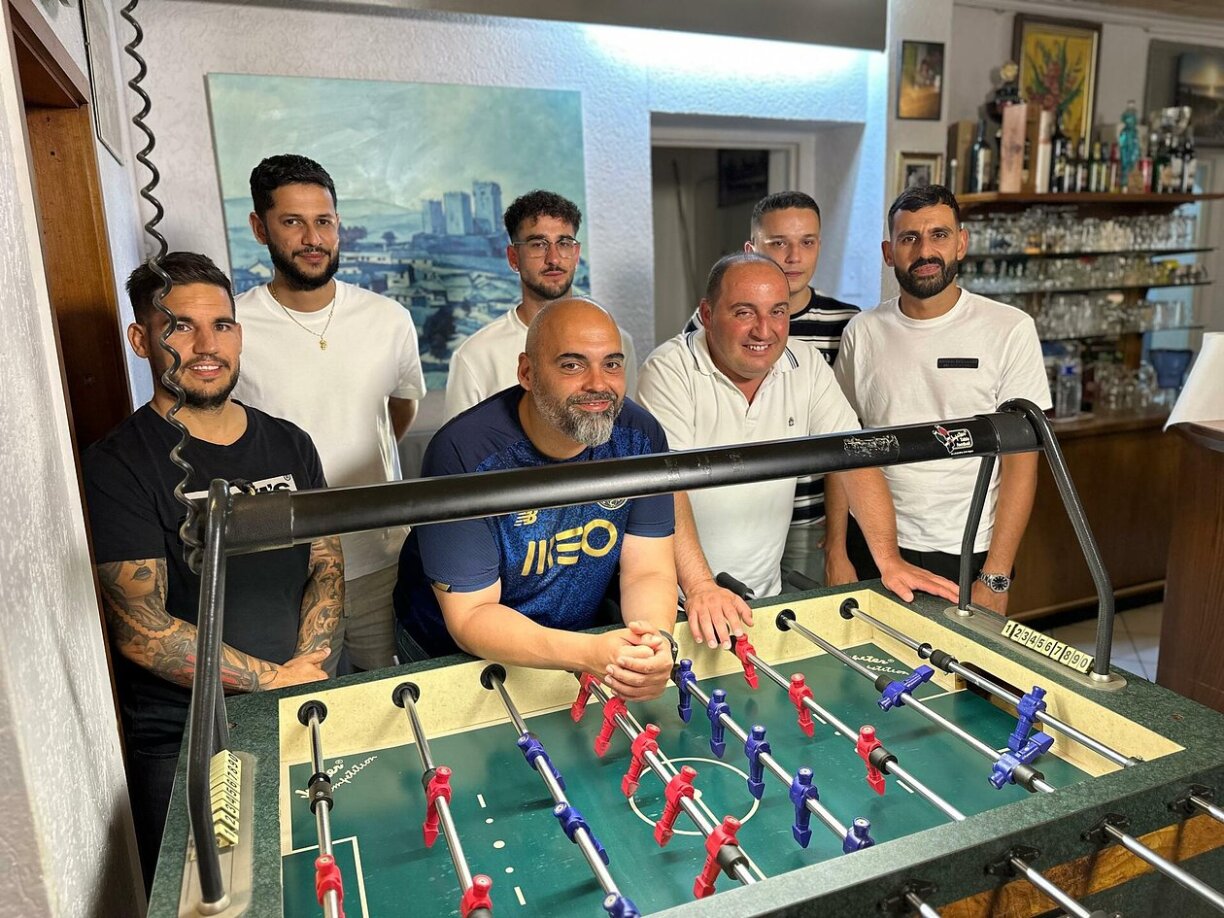
In 2015, Luxembourg brought home the world championship title in table football from Turin. A decade on, many of the same players are still competing – and hoping to win it back.
Like nine-pin bowling or darts, table football is one of the café sports where Luxembourgers have long excelled. The national team has consistently ranked among the world’s best.
Eight players are currently in Zaragoza, Spain, where the Table Football World Championship runs until 29 June. Held every two years, the tournament features over 40 national teams. Luxembourg has taken part since 2008 and is regularly counted among the favourites. Despite the team’s success, the federation is small, and several players sit on its committee.
Their training ground is far from conventional: a café in Dudelange, which doubles as the headquarters of both the Dudelange club and the federation. The café belongs to the mother of Paulo Afonso, president of the Dudelange club. When she can’t open, he steps in. Paulo, a member of both the club and the federation, also plays. With most clubs based in the south – Dudelange, Rumelange, Esch/Alzette – it made sense to establish the federation there, with Paulo’s agreement.
During national team training, Paulo serves drinks, occasionally joins a match, and says he picks up new tricks. “It’s in their blood,” he says.
The team includes Steve, Bruno, Riccardo, and Christophe from Esch, Carlos from Belvaux, and Mika from Soleuvre. All are amateurs, juggling day jobs as architects, TICE and CFL bus drivers, police officers, and customs agents. While they haven’t reclaimed the world title since 2015, they remain regulars in the top four. Steve remains optimistic: “I believe we’ll win this year.”
Training is focused and repetitive. “We practise the same shot over and over,” explains Bruno Gonçalves. “Getting from midfield to attack needs to be automatic.”
There are five table types, each differing in size, surface, rods, handles, and even player models. “Each one has its own characteristics,” says Christophe Da Rocha, comparing it to switching tennis surfaces – from grass to clay.
Match rules are strict. Moves like the ‘roulette’, common in casual games, are banned. Only one full turn of the rod is allowed – no more, no less – and banging the table is off-limits.
The current line-up is nearly identical to the 2015 team – just ten years older. While some new faces have joined, the core remains. Steve believes the team has matured strategically, especially in decision-making. “That’s where we’ve improved.”
There’s no age limit in table football. Paulo, who’s been playing for 35 years, once won the Luxembourg Cup. Carlos Ribeiro, the federation’s vice-president, says one of the biggest challenges is shaking off the café-sport image. Their long-term goal is to move to a proper sports hall – to raise the sport’s profile and attract younger players.
Before the pandemic, around 400 players were active in Luxembourg. That number has since dropped to 100. “COVID broke our neck,” Steve Dias says. The national championship resumed last year, and there’s hope the sport will bounce back.
For these players, kicker isn’t just a pastime – it’s a passion. They’ve recently claimed victories abroad, including in Germany and France, and some compete in the German league, where they continue to impress on both offence and defence.